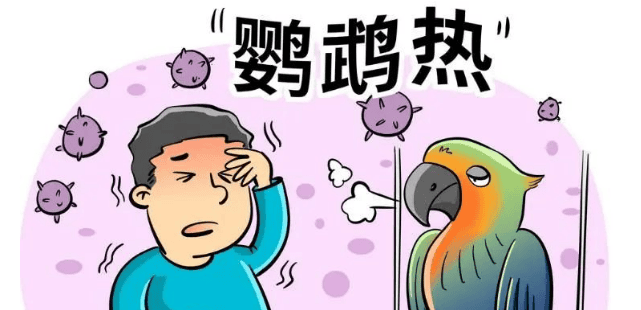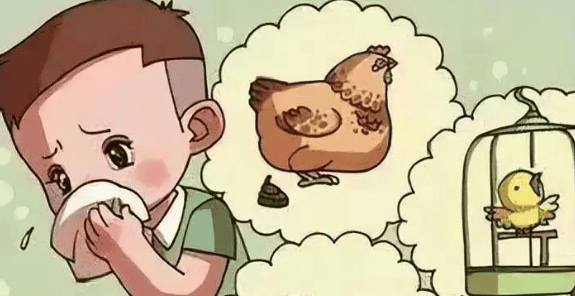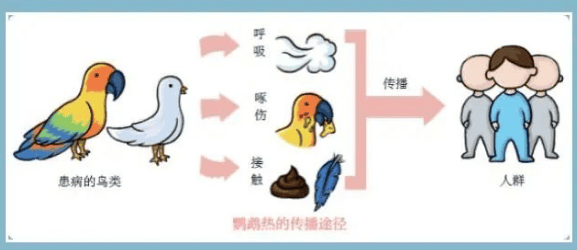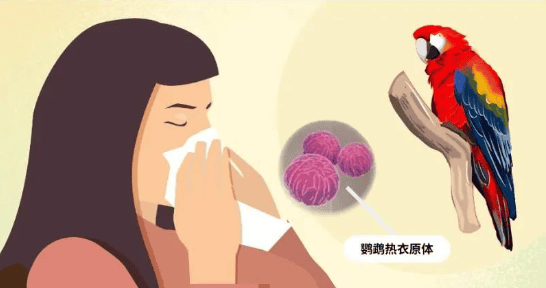In recent years, news of psittacosis cases have been reported in various regions across the country. Recently, there was one case in Shaoxing, Zhejiang. So what exactly is psittacosis? What are the symptoms? Today I will give you some relevant knowledge.
What is parrot fever?
Psittacosis is a natural epizootic zoonosis caused by Chlamydia psittaci. The infection is spread primarily among a variety of birds and occasionally from vector animals to humans.

Source of infection
The environment, feathers and dust contaminated by bacteria-carrying or diseased birds and poultry and their secretions or excretions containing bacteria.

Transmission route
1. Respiratory tract transmission
Chlamydia or infectious aerosols mixed in dust can cause inhalation infection through the respiratory tract.
2. Contact transmission
If you come into contact with infected birds and their contaminated secretions and excretions, you can get infected through multiple ways such as damaged skin or mucous membranes and digestive tracts.

Clinical manifestations
The clinical manifestations of Psittacosis are diverse, and can start slowly, with body temperature gradually rising over a period of 3 to 4 days or longer, but most cases have an acute onset. High fever, chills, and relatively slow pulse. There is general malaise, fatigue and weakness, and anorexia.
Severe headaches and general muscle pain are common complaints. Myalgia in the limbs and trunk can prevent patients from standing. Spasm and stiffness of back and neck muscles can be misdiagnosed as meningitis.
Some cases have nosebleeds or rashes. Severe cases may have difficulty breathing, cyanosis, irritability, delirium, stupor, coma, etc. Some cases have gastrointestinal symptoms such as nausea, vomiting, and diarrhea. If jaundice occurs, the liver is involved.
It can invade the lungs and cause pneumonia, resulting in coughing, shortness of breath, etc. The disease is easily confused with colds, flu, bacterial pneumonia, etc. In severe cases, it may lead to complications such as myocarditis, heart failure, and respiratory failure. , and may even threaten life safety.

Daily preventive measures
@Bird lovers:
Purchase quarantined pets from regular channels.
Pay attention to maintaining the hygiene of the bird-raising environment, clean the bird cages every day, and disinfect them regularly. When handling bird droppings, pay attention to personal protection and wear a mask and gloves.
@Everyone:
Avoid or minimize contact with birds. Develop good personal habits. Wash your hands promptly after coming into contact with birds. If you are scratched by a bird, clean and disinfect the wound promptly.
When cooking poultry on a daily basis, cook it thoroughly.
When there are frail elderly people, children or people with low immunity at home, try not to keep birds as pets.
Please remember
If birds are found to have symptoms of psittacosis, they should be isolated immediately and sent to a veterinary hospital for treatment.
If a person develops corresponding symptoms after contact with birds, he should seek medical treatment immediately and proactively inform the doctor of the relevant contact history.

 扫一扫微信交流
扫一扫微信交流
发布评论